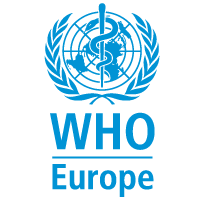
“My dad was the definition of a gentleman. He was so gentle and loving, kind and compassionate.”
Safiah Ngah’s father, Dr Zahari Ngah, was a clinical psychologist and psychotherapist who moved from Malaysia to the United Kingdom in the 1970s to work in the National Health Service.
“In his spare time, he would treat refugees and asylum seekers as a labour of love, because he wanted to help people. He was just an incredibly good person. And we miss him very much.”
Safiah had moved home over Christmas 2020, just before a second period of lockdown was announced in the United Kingdom. She and her brother contracted COVID-19 while shopping on behalf of their parents. Although they tried to isolate, Safiah’s father soon tested positive too.
“He seemed okay. He was working from his bed, isolating from my mum. A couple of days later, I came down to his room to check that he was okay and he told me that for one moment overnight, he hadn’t been able to breathe. Later that day, he started coughing up blood.”
Dr Ngah’s wife took him to University College Hospital for a check-up, and he was immediately admitted to a COVID-19 ward.
“He had never really been ill, so I can only imagine how terrifying that experience must have been, surrounded by people in hazmat suits and masks, knowing how dangerous this virus was.”
Unfortunately, his condition deteriorated, and intubation (when a ventilation tube is introduced into a sedated patient) became the only option.
“We said goodbye to him over a video call. It was unimaginably horrible for him to have to go through that and then be put to sleep on his own. We had just one more video call with him, while he was asleep.”
Dr Ngah was intubated for 5 days, but it became clear that nothing more could be done to help him.
“Our doctor was very young and he was crying as he told us they had run out of options. We had to queue for the room where he broke the news to us because there were so many families there that day, all there for the same reason.”
The family made the heartbreaking decision to turn off the breathing support, holding Dr Ngah’s hands as he passed away.
“There is a real disconnect in my mind between that moment and life now. I can’t put into words how much my dad’s death has affected my life and my family’s life. It feels like the foundation of our lives has just been ripped apart.”
As she comes to terms with her own grief, Safiah has found support through solidarity with other families who lost loved ones to COVID-19.
“When we talk about losing somebody to COVID-19, that one life affects so many people. Two million in Europe have died from COVID-19. That’s awful. Horrendous. And when you look behind it, you see the stories and the families that they’ve left behind. All the grief.”
Safiah does not believe the pandemic will be over any time soon. She advocates consideration for those who are vulnerable to the virus.
“If my dad hadn’t died, it would be very easy for me to think that COVID-19 isn’t a serious illness. It didn’t affect me as badly as my dad, so I can see how people would think that. As we move into summer, we need to continue to keep other people in mind. I take as many precautions as I can. I still wear my mask when I go into a shop or on the bus. If COVID-19 ceases to exist, and people aren’t catching it or dying of it, then I probably won’t feel the need to wear a mask anymore. That’s not the case at the moment.”
As we mark the grim milestone of 2 million deaths from COVID-19 in the WHO European Region, Safiah resists calls for life to return to normal.
“Whether you’ve lost family members, your grandparents or just your social life over the past few years, we’re all grieving. We would do well to move forward with a sense of reflection about what has been lost, rather than continuing into the future without any sense of what we’ve experienced.”

